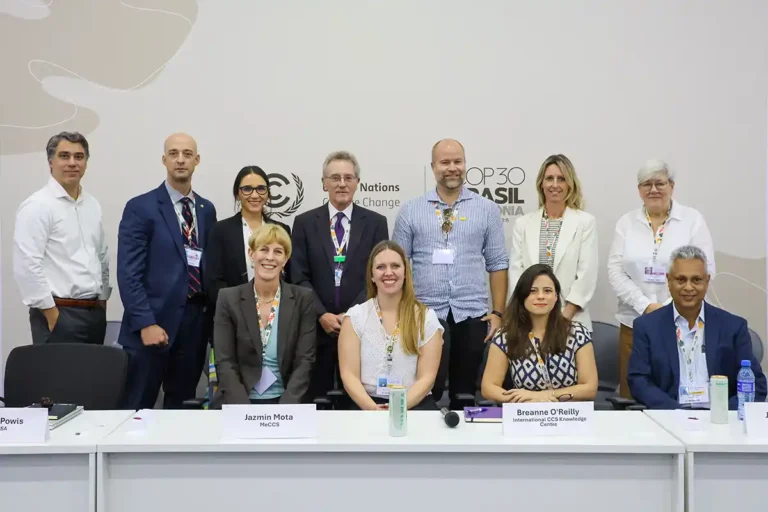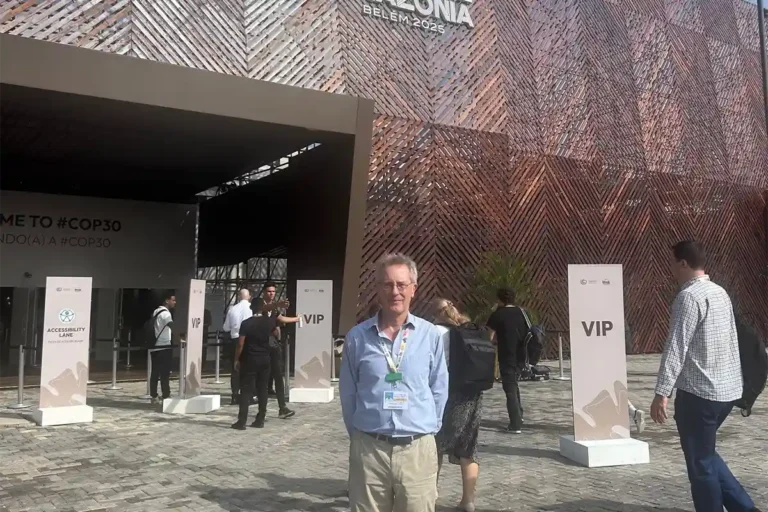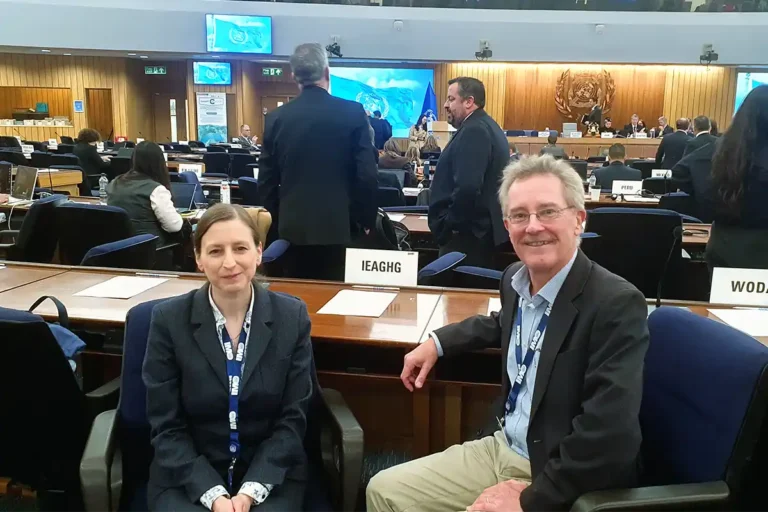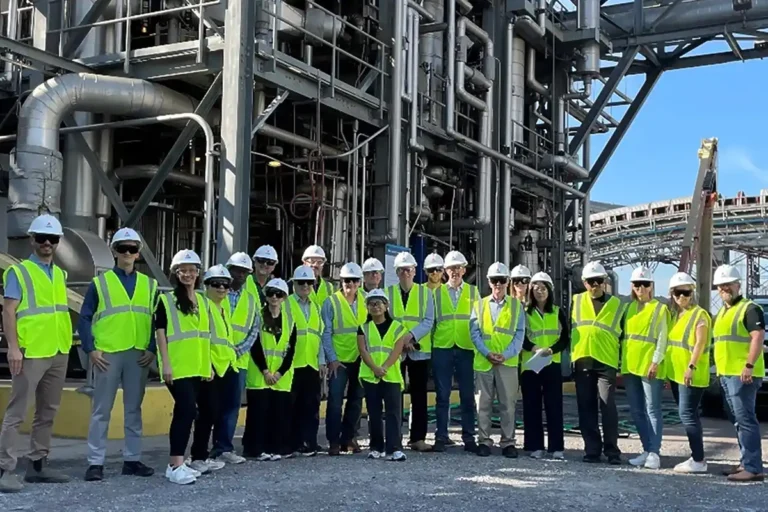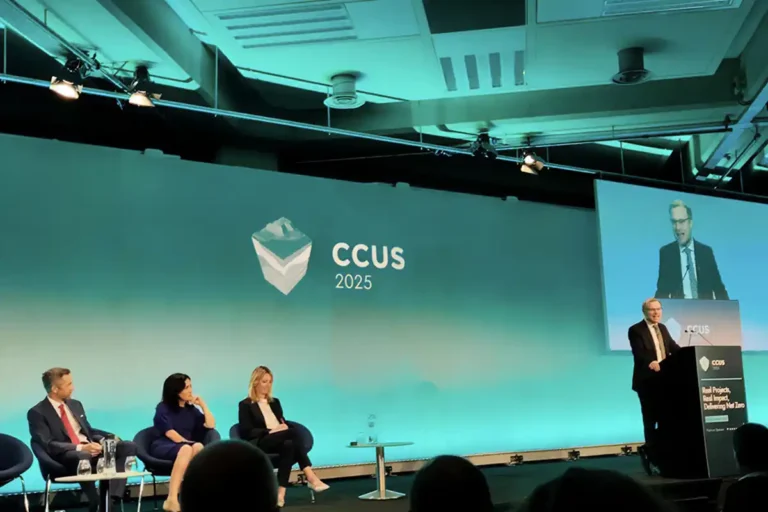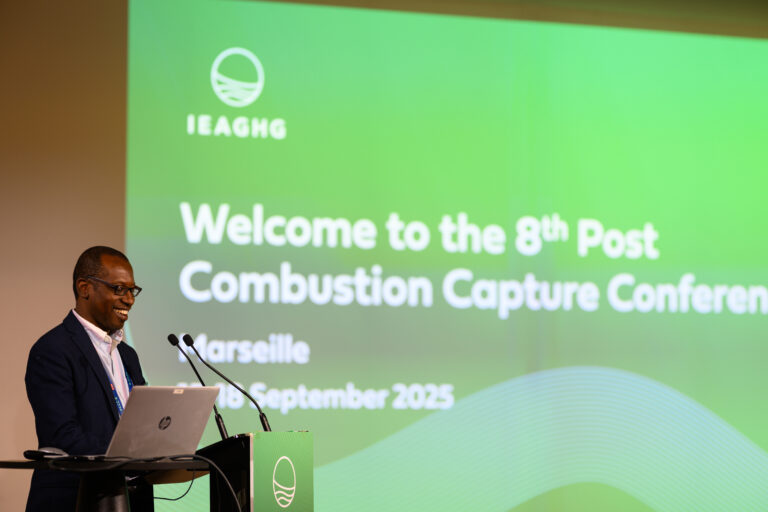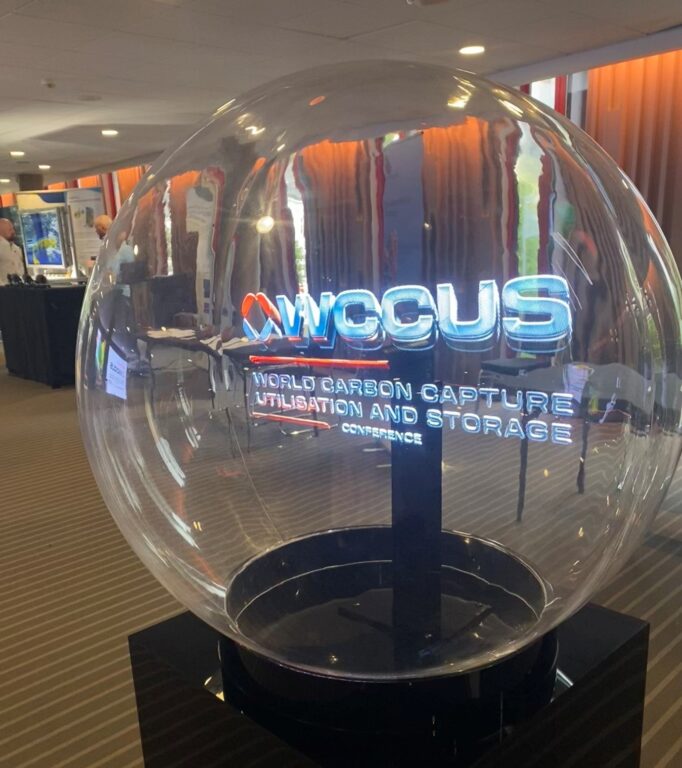
Clean Energy Ministerial Launches CCUS Initiative: “A second birth for CCUS”
25 May 2018

Yesterday in Copenhagen saw the launch of a new initiative under the Clean Energy Ministerial (CEM) on Carbon Capture, Utilization and Storage (CCUS). To mark the launch, a Side-event was held. This brought together governments and industry to discuss strategic public-private partnerships to encourage deployment of CCUS.
Terje Soviknes, Minister of Petroleum and Energy in Norway opened the Side-event, describing the role of governments to bear some risk to start CCUS deployment but that industry needs to show commitment also. Fatih Birol, Executive Director of the IEA, provided a scene-setter on the “critical need for CCS” but that it gets low policy attention compared to other low carbon energy technologies. However he saw hope in that more companies are seeing the long-term value of CCS, and that the recent 45Q developments in the US could be a “gamechanger”.
The discussion was then moderated by Dan Brouilette, Deputy Secretary of Energy, USA, and by Khalid Abuleif, Chief Climate Negotiator of Saudi Arabia.
Kim Rudd of NRCan highlighted the knowledge sharing by the International CCS Knowledge Centre of the learnings from the Boundary Dam project (BD3). Masaki Ogushi, Vice-Minister of METI Japan talked of the need for infrastructure investment. Mike Monea of the International CCS Knowledge Centre talked of the good and stable policy and regulatory environment which assisted BD3, and the need for government funding for the first of a kind demonstration. Leonardo Beltran Rodriquez, Deputy Secretary, Secretariat of Energy, Mexico announced the start of a CCUS Innovation Center by Mexico. Pratima Rangarajan, CEO of OGCI Investment, talked of the need for a market for CCUS in order for industry to plan long-term, and the need for help with infrastructure and de-risking long term storage for industry. This theme of reducing business risk was continued by John Loughhead of UK BEIS, identifying the potential to reduce financial risk and costs. The CEO of Equinor (formerly Statoil) described how CCS is essential to “unlock hydrogen”. Marcel Beukeboom, Climate Envoy of the Netherlands encouraged the role of the finance sector to only fund investments which contributed to achieving the Paris Agreement.
Minister Soviknes concluded the Side-event by emphasising the need for more full-scale projects, and congratulating everyone in the room on being there and thereby taking a leadership role in CCUS. Fatih Birol added that in his view this represented a “second birth for CCUS”.
Another new initiative was launched at CEM9 yesterday on nuclear power innovation, with an emphasis on small modular reactors and the interactions with renewable energy, with hydrogen and with heat. Interesting that they appeared to be seeking similar integration with these areas as CCUS will have.
So it was interesting to witness CCUS being placed higher on the international policy agenda of the Clean Energy Ministerial, in a very warm Copenhagen. There appeared to be general consensus by governments and industry on what can be done to encourage wider CCUS deployment. Will this turn into more actions and will this positivity spread to other countries? Well, as countries update their NDCs we expect to see more CCS in national policies, and IEAGHG is here to support such policy developments with technical knowledge and evidence-base.
For more information on CEM9 see http://www.cleanenergyministerial.org/events-cem/clean-energy-ministerial-9-cem9

Other articles you might be interested in
Get the latest CCS news and insights
Get essential news and updates from the CCS sector and the IEAGHG by email.
Can’t find what you are looking for?
Whatever you would like to know, our dedicated team of experts is here to help you. Just drop us an email and we will get back to you as soon as we can.
Contact Us NowOther articles you might be interested in
Get the latest CCS news and insights
Get essential news and updates from the CCS sector and the IEAGHG by email.
Can't find what you are looking for?
Whatever you would like to know, our dedicated team of experts is here to help you. Just drop us an email and we will get back to you as soon as we can.
Contact Us Now

